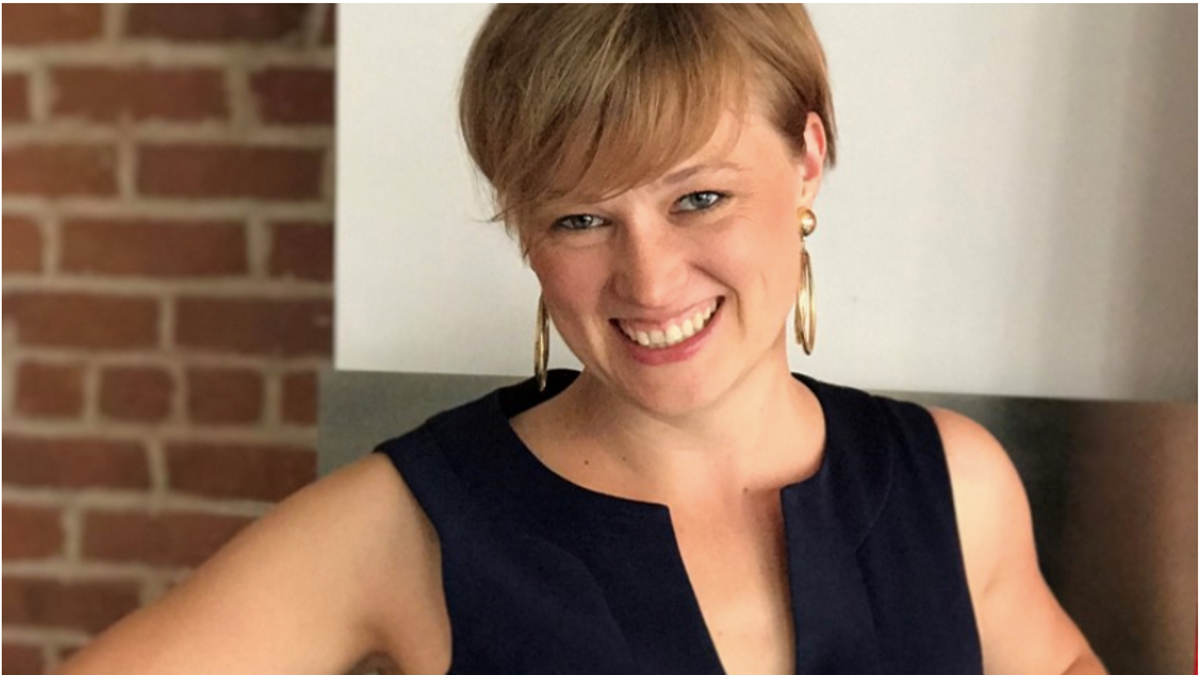We have lots of ways for women to feel empowered nowadays. The Women’s March, the #MeToo movement. More women than ever are running for office, and actually winning elections. There are girls-only engineering camps, girls-only maker camps, girls-only after-school clubs, and they’re growing like crazy.
But is all this empowerment the same thing as having actual power?
Julia Rhodes Davis was destined to be someone who empowers people living on the margins. Her great-grandfather stood up to the KKK when they objected to him opening a school for black kids. Her grandparents marched for civil rights in Jim Crow-era Kentucky. Her mother founded a training institute for progressive religious leaders to bring about a more equitable society.
So it’s no surprise that Julia’s kind of obsessed with equality and representation.
As chair of the board of Vote.org, Julia has made the radical and deliberate decision to form an all-women board. It’s an experiment of sorts, one that could act as a case study for other nonprofit organizations seeking to change the status quo.
“When it came to board composition, when you look at the fact that 80 percent of nonprofit board members are male, [we decided] ‘let's be exceptional there and create an all female board,’” Julia told me in our interview for my podcast "Inflection Point." “Will this be in perpetuity? I don't know. But for right now it's working really really well.”
READ MORE: Soon-Yi Previn and Woody Allen’s strange charm offensive: An enigma wrapped in scandal
Her experiment has already revealed some fascinating observations on the drastic change in dynamics when all women are put in charge.
“We spent 10 hours in a room together doing all kinds of planning and thinking and debating and so forth, and then we had a dinner that followed on,” Julia told me. “And at the end of it, I reflected with a fellow board member. Normally at the end of any board meeting, whether I'm on the board or on the staff serving the board, I'm exhausted. And this time I'm energized. What's the difference?”
Ask any woman who’s sat through a long meeting surrounded by men, and she could tell you what the difference is: we struggle to make ourselves heard while carefully avoiding accusations of being "bitchy," "strident" or "shrill." We want to take ownership of what little power is tossed our way, yet we’re always at risk of being punished for wielding such power.
Can the empowerment that takes place in an all-women space — be it the boardroom or a co-working space or a girls' engineering camp — translate into actual, world-changing power once they step outside the bubble?
As Julia put it, "I think that all women's spaces could be seen as sort of incubators . . . these places that foster early-stage ideas and provide extra resourcing around the things that are most vulnerable at startups like infrastructure, and funding, and access to networks and access to know-how."
Find out what else Julia has to say about turning empowerment into power, and also shaping the future so women and minorities don’t need to be “empowered” anymore.
Listen to my conversation with Julia Rhodes, chair of the board at Vote.org and director of partnerships at The Partnership on AI in the latest episode of "Inflection Point."
Find more stories of how women rise up on Inflection Point, Apple Podcasts, RadioPublic, Stitcher and NPROne.



Shares